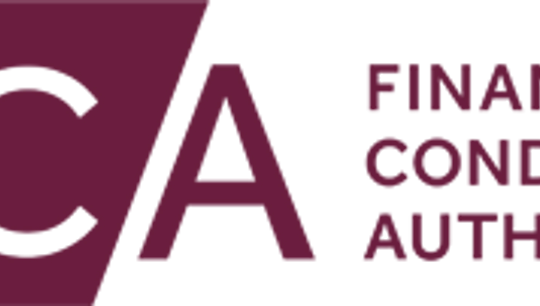2023 Review: AIMA in the EU
Published: 18 December 2023
2023 Review: AIMA in the EU
After a long period of negotiations and several delays along the way, 2023 eventually saw agreement on the AIFMD review. A political deal was reached in the summer while co-legislators finalised the technical discussions in October. By and large, the updated rules are relatively benign, and we have managed to fend off the most harmful potential elements that were discussed. Attention will now turn to transposition and Level 2 measures. As always, AIMA will be there to guide our members through the implementation stages with our suite of educational resources
AIMA's other advocacy work in the EU and the UK for 2023 includes:
- AIFMD review
- ELTIF
- Financial stability and macroprudential oversight
- Operational resilience
- Anti-money laundering
- Prudential regime for MiFID investment firms
- UK FCA Discussion Paper on the asset management regime
- EMIR Review
- UK SMCR
- UK Wholesale Markets review
- LIBOR transition
- Securitisation
- UK Productive Finance Working Group – reform to DC pension scheme charge cap
- Digital finance
A full breakdown of the key regulatory themes for the EU and the UK can be found here.
AIFMD Review
The AIFMD trialogue agreement maintains the delegation model while introducing more requirements on substance and more information to be reported to regulators. Minimum rules are introduced for liquidity management tools. Leverage limits are imposed for loan-origination funds of 175% for open-ended funds and 300% for closed-ended funds. The treatment of loan-origination funds proved to be one of the most contentious elements of discussions. As part of our engagement, we reminded policymakers that the AIFMD already provides a framework for the use of leverage by AIFs regardless of their investment strategy. Nevertheless, there was such a deep focus from some Member States on the broader Non-Bank Financial Intermediation (NBFI) debate that the Council felt strongly there should be tougher rules imposed here. Regarding next steps, there are several areas of Level 2 work which merit our attention. AIMA will respond to the ESMA consultations in due course as well as monitor the passage of the Directive in the final approval process and national transposition.
In the UK we highlighted a misalignment between the UK AIFMD rules for national private placement and the relevant application form which was causing issues for members. We were successful in persuading the FCA to amend the form.
ELTIF
AIMA’s private credit affiliate, the Alternative Credit Council (ACC) responded to the EU Commission’s ELTIF review by providing a detailed analysis of how the framework was currently perceived by credit fund managers. Our response also highlighted ways to unlock the significant potential of the ELTIF vehicle, through broadening the range of eligible assets, providing ELTIF managers with greater flexibility on how they operate and structure ELTIF funds, and finally making ELTIFs more accessible for retail investors. Many of the ACC’s suggested reforms were reflected in the European Commission’s proposal for a revised ELTIF published in November.
Financial stability and macroprudential oversight
Central banks, coordinated by the Financial Stability Board (“FSB”), continue to focus on what they perceive as potential financial stability risks created by investment funds because of liquidity issues and leverage. We have been intensively involved with this high-profile and controversial work during 2023 and will continue to be so in 2024 and beyond. Among other things, we have responded to FSB and International Organization of Securities Commissions consultations on liquidity risk management as well as the Bank of England System Wide Exploratory Scenario test and the Central Bank of Ireland’s discussion paper on macroprudential regulation of investment funds.
Prudential regime for MiFID investment firms
Follow-up and monitoring work on the new EU IFR/IFD prudential regime, introduced on 26 June 2021 and the UK’s Investment Firm Prudential Regime, live from 1 January 2022, has continued with responses to consultations from the Central Bank of Ireland, the European Banking Authority, and the UK Financial Conduct Authority.
Anti-money laundering
Jurisdictions have continued to amend and update their anti-money laundering and countering terrorist financing legislation. The EU Anti-Money Laundering Package, which amends the current directive and creates the new Anti-Money Laundering Authority, is in the European co-legislative process. Our focus is the removal of unnecessary duplicative reporting requirements for funds. We continue to engage with the European Commission, member states and MEPs on it. We also responded to a European Banking Authority consultation on anti-money laundering and crypto-asset service providers. In the UK an attempt to create the new and un-need offence of failure to prevent money laundering was removed from the Economic Crime and Corporate Transparency Act following our advocacy.
MiFID
Discussions continue within the European Parliament and Council regarding the Commission’s proposals to overhaul MiFIR to introduce a consolidated tape and reform the MIFIR transparency framework. AIMA has been active in the debate to ensure that the design of the consolidated tape reflects the needs of data users and to ensure that more consideration is given to questions of how to minimise the reporting burden for buy-side firms in the context of transparency obligations.
EMIR Review: The proposal to amend the EU clearing rules to require market participants to clear a minimum percentage of derivative trades at EU CCPs represents a fundamental shift in the clearing framework. In 2023, AIMA issued 3 Position Papers and engaged extensively with Commission, Council and Parliament on this topic. We remain part of a wider industry group of Trade Associations which have released several joint statements to policymakers to urge a proportionate outcome on the proposal.
EU MiFIR/MiFID II Review
2023 saw a political agreement at the European level on sweeping changes to the MiFIR framework. A fundamental part of the Review – and one that AIMA has been advocating for many years - is legislative measures to facilitate the establishment of consolidated tapes (CTs) for market data. The end outcome is squarely in line with AIMA’s position – with a consolidated tape provider to be appointed for each of the main asset classes to provide data as close to real-time as possible. We believe this will support transparency and resiliency in EU capital markets. The final texts should take effect in Q1 2024.
Securitisation
The UK and EU undertook separate reviews of the EU Securitisation Framework in 2021. The ACC responded to both Calls for Input highlighting the asset management sectors' perspective on the general functioning of the regulation and areas for improvements.
This included targeted recommendations on the applicability of the STS criteria for CLOs, reducing the operational burden on private securitisations, clarifying investor due diligence requirements as well and supporting a more efficient NPL market. UK and EU policymakers are expected to reform the Securitisation framework in 2022 and the ACC will continue to engage with them on this ongoing workstream.
Tax
- Unshell Directive:
In November 2023, AIMA submitted a letter to the European Commission and Member States to urge them to retain the exemption for regulated financial entities, including any associated legal entities owned by an investment fund (such as holding companies) from any final approach under the ‘Unshell Directive’, consistent with the approach put forward in the ‘Pillar Two Directive’. Otherwise, we fear a significant administrative burden placed on fund managers which is not the intention of the proposal.
- Withholding Tax:
In November 2023, AIMA sent written comments to the European Commission and Member States expressing support for the approach being pursued but calling for the scope of the proposal to be expanded to include all payments which are subject to withholding tax and an extension of the electronic residence certificate to non-EU investors. Agreement on the proposal is expected in H1 2024 and we will continue speaking to contacts in the Member States in the meantime.
- EU List of Non-cooperative Jurisdictions for Tax Purposes
No leading fund domiciles are currently included on the EU’s List of Non-cooperative Jurisdictions for Tax Purposes, but the list – and a separate AML list from which the Cayman Islands has now been removed - remain significant for the EU which identifies inclusion as a trigger for defensive measures in many contexts, including marketing by third country funds in the EU under AIFMD. In October 2023, the EU agreed to remove the British Virgin Islands from the EU list of non-cooperative jurisdictions and it is now placed on the Annex 2 list. Hong Kong has committed to reform its foreign source income exemption regime by 31 December 2023 which it is expected to achieve. The expectation is that Hong Kong will be removed from the Annex II list and given a clean bill of health in 2024.









